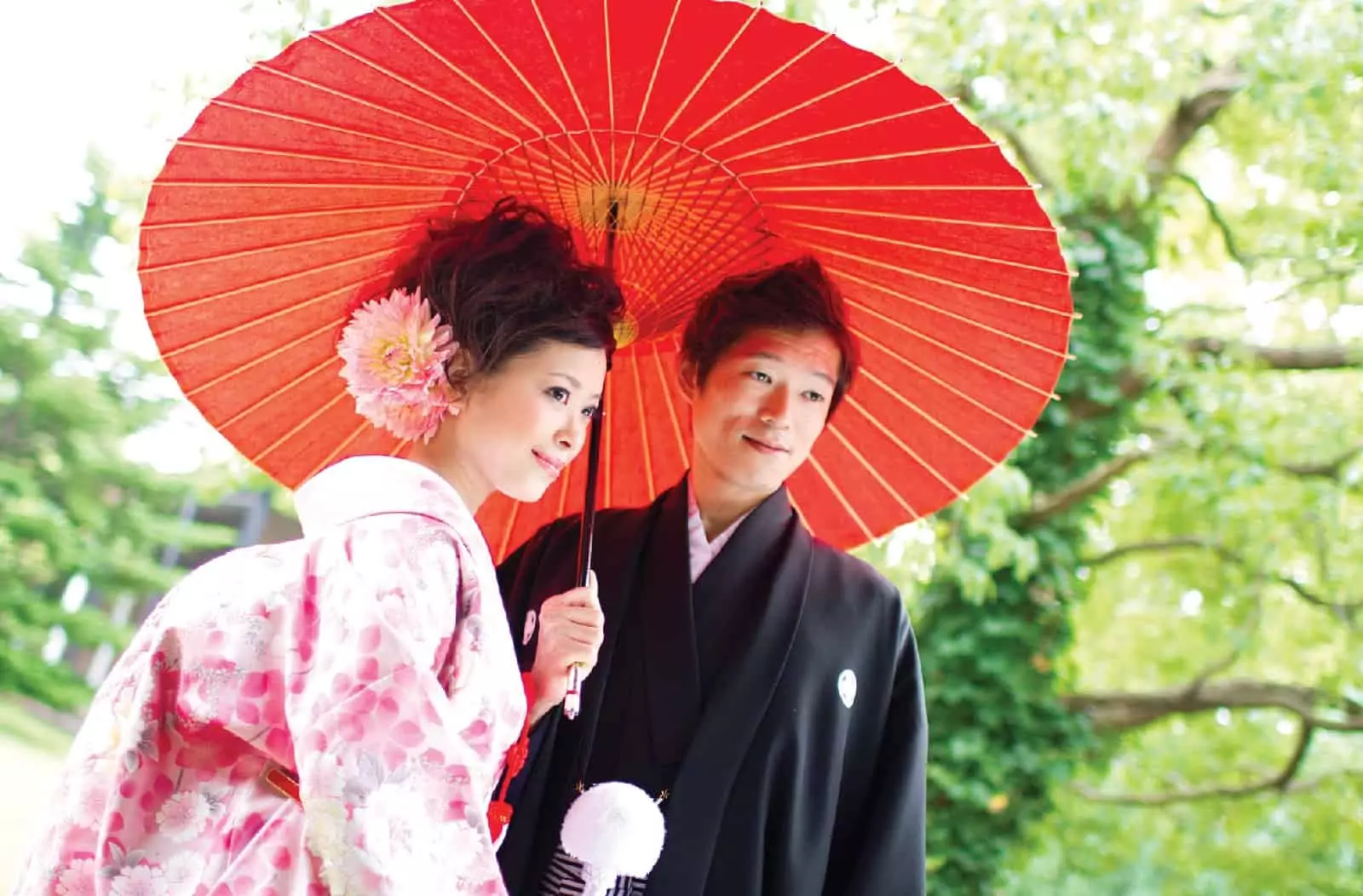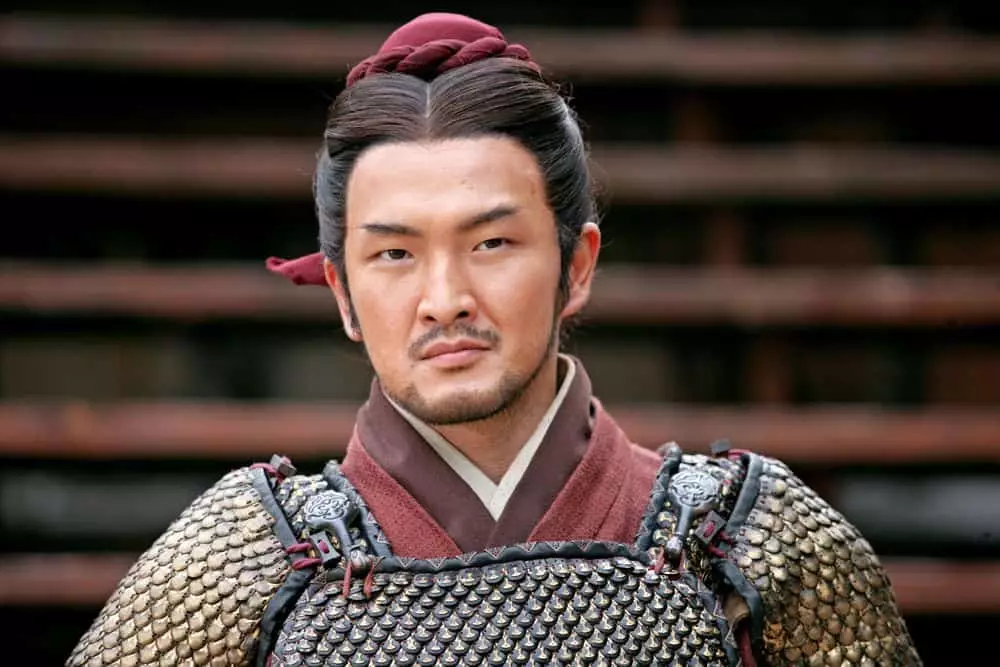I'm interested in a Japanese culture from adolescent age. And in order to better understand what is laid in the names of the Heroes of Mang and Anime-TV series, I decided to figure out what kind of men's names are common in Japan and how exactly they are formed. With the results of my little study unusual for Europeans name, you can get acquainted now!
How are Japanese names formed?
In Japanese, everything is much more complicated than in European. The fact is that the writing of the Japanese is still predominantly hieroglyphic. Therefore, it is simply impossible to designate the name. All this is enjoyed by the rich cultural traditions of the original people. How does the name of the samurai descendants come?

What words are the names in Japanese culture formed?
Find out what awaits you today - a horoscope for today for all zodiac signsBy numerous subscribers requests, we have prepared an accurate horoscope application for a mobile phone. Forecasts will come for your zodiac sign every morning - it is impossible to miss!
Download free: Horoscope for every day 2020 (Available on Android)
When choosing a name for a child, the Japanese pay huge attention to hieroglyphs from which it will consist, as well as their number (usually varies from two to four). Part of the signs will be responsible for personal qualities: the boy can call brave, honest, strong or cunning. Others designate objects of flora, fauna, relief and other natural features. Each of them is a metaphor. For example, the ocean reflects the breadth of thought, the sky is a dream, most of the plants - strong physical health, and animals - power and resistance.
Nominal suffixes
Nominal suffixes in Japanese are added to the names of their own, as well as professions. They allow you to point out a trust relationship between the interlocutors, and also designate sexual affiliation and human status. Sufifix "San" applies if it is necessary to convey a respectful attitude towards a person (in fact, it is synonymous with the European circulation "Mr."). Usually, "San" is used if the conversation goes between colleagues for work, strangers or not close people with equal social status.

A little less official are the following two nominal suffixes. "Kun" usually sounds if there is a dialogue between equal to each other with men of one position (close to the meaning to the terms "Comrade" or "Friend"). But also such an appeal can be heard during the conversation of the teacher and the student, boss or subordinate. "Tian" or "Chan" is used to small children closely familiar guys (analogue of the Russian suffix "CKA"). But if we talk about use in relation to men, it usually sounds from the mouth of a girl in love.
Men's Japanese names
In modern Japanese society, there was a contradiction of the situation: some families prefer to use the traditional names of their people, while others show interest in the names from other countries (of course, they are also adapting to the hieroglyphic written language, and the pronunciation is somewhat deformed).Original Japanese names and their Russian equivalents

- Adam denotes the "first person", in Japanese sounds like Itiro (一郎).
- The Greek Name Alexander means "Defender", he sounds like Mamor (守) in Japanese.
- Ricky (力士), like the Russian name Boris, is translated as a "wrestler".
- "Brave" in Russian - Andrei, and in Japanese - Isao (勇夫).
- The prose name of Yuri translates as "PAKAR", analogue in Japanese sounds like Tamhiko (農彦).
- "Loves of the Gods" in Russian - Gleb, and in Japanese the name is pronounced as Kamia (神友).
- Takasi (蒼) is a rare single-beam name, similar to the Russian "revered God" - Timofey.
- The name Oleg translates as "Holy", on Japanese it is written as Issi (一聖).
- The "noble" Gennady in the country of the Rising Sun is called Yuki (優貴).
- Kaito (翔 大) indicates the "biggest" or "greatest", the same value also has the name Maxim.
- "Rooded" from Russian - Sergey, but in Japanese, the equivalent name sounds like: Saymei (世明).
- The "listening" in Russian is pronounced as Semen, on Japanese, the name with a similar value is read by han (現聞).
- Dipes (大 気) resembles the name Valentine, which, in turn, is translated as "brave".
- The "winner" Victor has a name similar to Japanese Katsuto (勝人).
- Seari (将力) is like an original German name Anton, it also translates as "fighting".
- Kodi (皇皇), like the name of Vasily, denotes "royality".
- "The Lord of the World" Vladimir on behalf of the name is like a Japanese Tsukas (主).
- Syoma (小 真) Intuitively want to compare with the name of Semyon, but it translates as Paul or "small".
- "Inspirational" Denis in Japan will be called dziihiro (自由 創).
- Hoseke (宝石) is synonymous by the Russian name Peter, their general meaning is "stone" or "small rock".
- "Determined Demeter" or simply an abstract goddess Dmitry is an analogue of the name Yutak (肥).
- Eiji (栄治) translates as Artem, this name, in turn, denotes a "boy with strong health."
- Kadzuhiro (主丈) is synonymous to the word "Mr." or "Vladyka", like the Russian name Kirill.
- "Strong" or "secured" Valery has a synonymal name with the Japanese name Kinpei (金兵).
- Daniel denotes the "judge", in Japanese sounds like Satosa (賢士).
- "Vigilant" Grigory will be called in Japan Nao (成起).
- Coca (高 貴), just as the name of Eugene, means "noble" or "noble".
- "Incomplication" in Russian - Ilya, Japanese - Takeo (丈夫).
- Kant (神頭) is like Mikhail's biblical name, it is identical to the phrase "similar to God."
- The "Winner of Peoples" Nikolai will be called in Japan more gently and long: Masao (勝雄).
Adaptation of American and European names
- "The most" from English sounds like John, and on Japanese - Dzon (甚).
- Aizak (愛作) in the states would be called Aizek, that is, "creating love."
- The name Simon (彩門) does not change its pronunciation in English, and in Japanese, the value is also one - "Color Gate."
- The "ascending dream" is written as this (登夢) and reminds the name of Tom or Thomas.
- The name Alan is read as Aran (亜蘭), hieroglyphs indicate something in the spirit of Asian Orchid.
- Robin (路敏) keeps the sound, but the secret designation in Japan is different: "Short way".
- The value "grade" is similar to the name of Louis from Europeans, the Japanese has the same name as Rui (類).
- The "free season" from the Japanese is recorded as China (季逸), the name is like European whale.
- The name of Ray (黎) is also peculiar and Asian, and European culture, in Japan, it means "early".
- Henry from Europe would call Henry (編利), this name is decrypted how to "change interest."
- There is a tendency to replace "l" to "P" and in the name of Raone (礼音), denoting "polite sound", or Leon.
- Herooglyphs "Heroic Earth" (英 土) denote the name of Edo, identical English Edward.
- The name Ron (論) retains pronunciation, and its hieroglyph indicates the personal quality "logical".
- Robert is written by hieroglyphs "cherish a step" and sounds like Bob (慕歩).
- The "calm benefactor" of the Japanese pronounced Dzin (悠仁), which looks like the European Name of Eugene.
Vintage names of the Japanese

Earlier, the Japanese name was somewhat different. So, in ancient times, the names were given in the order of children (names of Itiro, Dziro and Saburo are translated literally as the "First Son", "The Second Son" and "Third Son", respectively). Classic samurai names are slightly more intricate, but there is a certain proportion of similarity in their form. For example, they are all written in three hieroglyphs. It is also accepted to give the names of one-utilized and uniform brothers so that the last hieroglyph in them coincides. It seems to unite all brothers into a single generation of one kind.
In some provinces, they try not brothers, but children and father. The involvement in the name of one of the father's hieroglyphs shows the continuity of generations. But these days, such a relationship between relatives is rarely observed.
A bad tone is considered to be only the climbing of children in honor of the relatives or the use of the same names in the advent of cousins, other relatives of one generation. It is believed that each name has its own spirit and divide it between two boys.
Communication name and fate of the boy
Through the Japanese hieroglyphs, the Japanese tries to give the child with certain qualities that will help him all the future life. And their faith in the name and fate is sometimes justified.For example, one of the greatest politicians of the XVI century Toythoma Hidessi had a name made up from the words "abundance", "servant", "excellent" and "ancient". This representative of the peasantry literally entered his name in the history of the country and throughout his life changed his name from the contemptuous nickname Sarah (literally "monkey") to the one now can be found in world history textbooks.
Conclusion
- Japanese names are formed from personal qualities, nature phenomena, animal names, and so on.
- In Japan, registered suffixes are common, allowing to allocate human status.
- Traditional names are not popular, but in some parts of the country, the old ways of adoption of children are distributed.
- Most of the names used have consonant with foreign or complete coincidence.
- The Japanese believe that fate is directly related to the name of the child, so you need to choose it with the mind.
